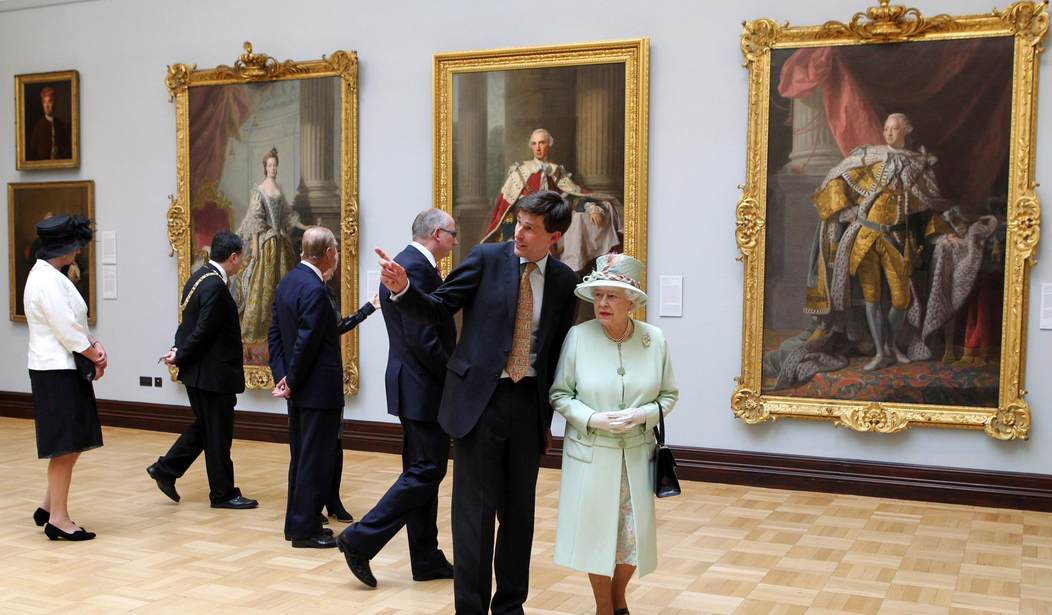The Scottish National Party (SNP) has started reviewing gender equality laws, and one leader called for sexual discrimination laws to apply to churches and mosques, Britain’s The Times reported.
“We would not tolerate murder, violence, racial discrimination or sexual abuse in any religious organisation, so why do we not only tolerate, but legislate for, gender discrimination?” asked Ben Thomson, chairman of Creative Scotland, the public body that supports the arts, screen, and creative industries across Scotland.
“There seems to be a huge focus by politicians and media on the importance of the number of women in cabinet or on corporate boards but there is little mention that there are no female Catholic priests or mullahs,” Thomson added in a document he sent to SNP ministers to advise them on how to examine gender equality laws.
The Equality Act of 2010 includes an exemption from the prohibition on gender discrimination if employment is for the purposes of an organized religion. Thomson opposed this exemption on the grounds that it denies women the same rights as men in the workplace.
“Most of the religions practised in the UK to some extent discriminate on the basis of gender and it is time we stopped supporting this exemption in our legislation,” the arts chairman said.
Thomson argued that having women as religious leaders would integrate the culture of churches and mosques “into the ethics of our culture in Scotland.” Such integration would decrease “alien” practices such as female genital mutilation and forced marriage, he claimed.
But the arts chairman went even further. “If there had been greater gender diversity in the Catholic church, the extent of paedophilia by those in positions of authority within the church would most likely not have been as widespread.”
“In both the examples, the end victims are not necessarily members of the religion, but it is the lack of women as part of the leadership in religion that leads to wider problems in society,” Thomson wrote.
According to The Times, forcing churches and mosques to hire female leaders would also tackle “fundamentalism.”
“If we want to assimilate Muslims, Christians, Jews, Hindus and the many other religions into our society then, while accepting and celebrating their differences, they should also accept that there is a set of ethics that include prohibiting gender discrimination that should form the basis of every part of our society, including religion,” the arts chairman wrote.
Make no mistake — this guidance represented a plan to bring secular discrimination law into religious groups, especially Roman Catholic churches and Muslim mosques. Worse, Thomson based this proposal on the preposterous idea that only allowing male leaders in religion was responsible for the sexual abuse scandals of the Catholic Church and the cultural misogyny in the Muslim world.
A Scottish Catholic Church spokesman attacked his remarks as “ill-informed and poisonously anti-religious.”
“Religious life is not a ‘workplace,'” the spokesman declared. “To suggest otherwise is to demonstrate a lamentable ignorance of religion and belief.”
The spokesman directly addressed the child abuse connection. “To suggest gender diversity is an antidote to child abuse is both offensive and absurd. The fact that churches with women clerics have faced bankruptcy over abuse claims tends to undermine such preposterous assertions, but does not diminish their noxious nature.”
“To ascribe blame for gender imbalance to two minority groups — Catholics and Muslims in a society which is almost entirely secular — is close to laughable,” the spokesman concluded. “These opinions seriously call into question Mr Thomson’s judgment and cast doubt on his suitability as chair of our national arts body.”
The Muslim response was similarly negative. Omar Afzal, spokesman for the Muslim Council of Scotland — an organization with three women on its executive board – said he was “disgusted” by the “derogatory, out of date and unfounded” remarks.
“Scotland is a forward-thinking country with equality at its very hear and we do not tolerate prejudice in any form,” a Scottish government spokesman said. “The nature of public consultations means we receive a wide range of views from individuals and organisations.”
The SNP should know better than to accept Thomson’s proposal, but the very fact the arts chairman suggested applying secular sexual discrimination law to religious bodies should concern supporters of liberty on both sides of the Atlantic.
Many secularists oppose public displays of religious symbols in the name of “separation of church and state,” but the real threat to this separation comes from secular governments impinging on religious freedom.
The issue of “discrimination” is particularly sensitive, as Christian bakers, florists, and farmers have been penalized for refusing to provide services for a same-sex wedding. While these people have gladly provided services to LGBT people in other settings, they have refused to endorse same-sex weddings.
Even so, such free speech actions are attacked as “discrimination.” Some LGBT activists have announced plans to target churches to force them to host same-sex weddings.
The very idea that gender imbalance in church and mosque leadership — rather than cultural factors — is to blame for female genital mutilation, sexual abuse of children, and other abhorrent practices is absurd.
The barbaric practice of female genital mutilation is most widespread in northern Africa and parts of the Muslim world, despite the fact that churches and mosques across the world have only male priests or mullahs.
Just like the U.S., Scotland does not have an established church. (Although England does, the United Kingdom does not.) Should Scotland apply gender discrimination law to churches and mosques, however, it would effectively be establishing a religion of diversity.
The outcry against Thomson’s suggestion may prevent it from becoming law, but liberty-loving people of all faiths should be vigilant against similar efforts to invade churches and mosques with secular laws, in the name of discrimination or otherwise.









Join the conversation as a VIP Member